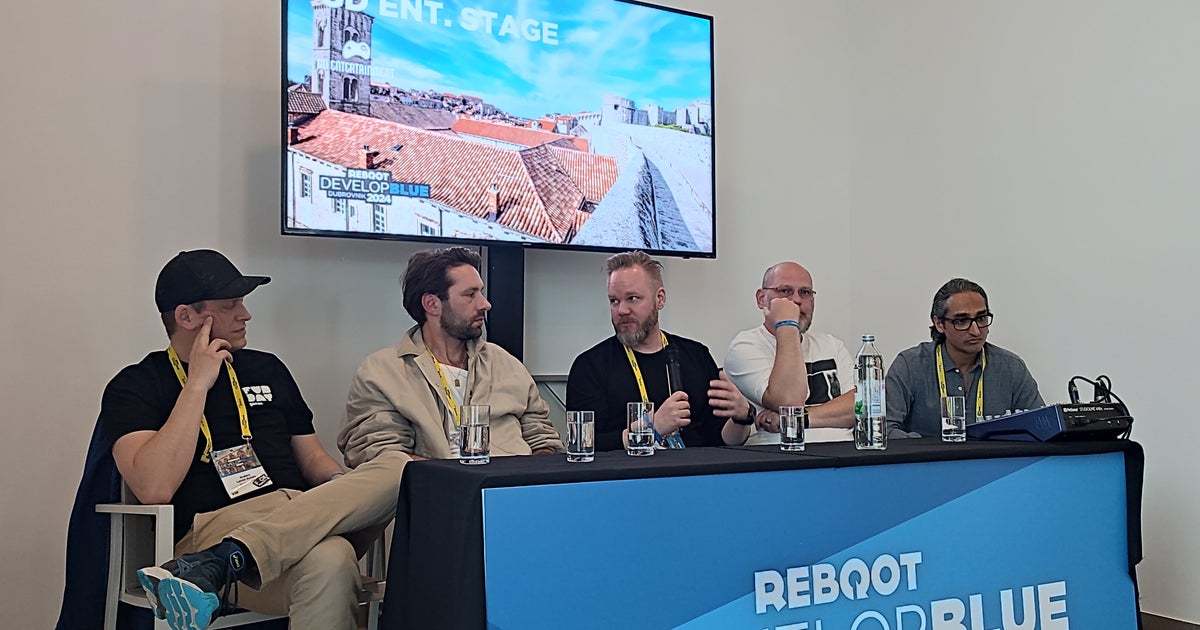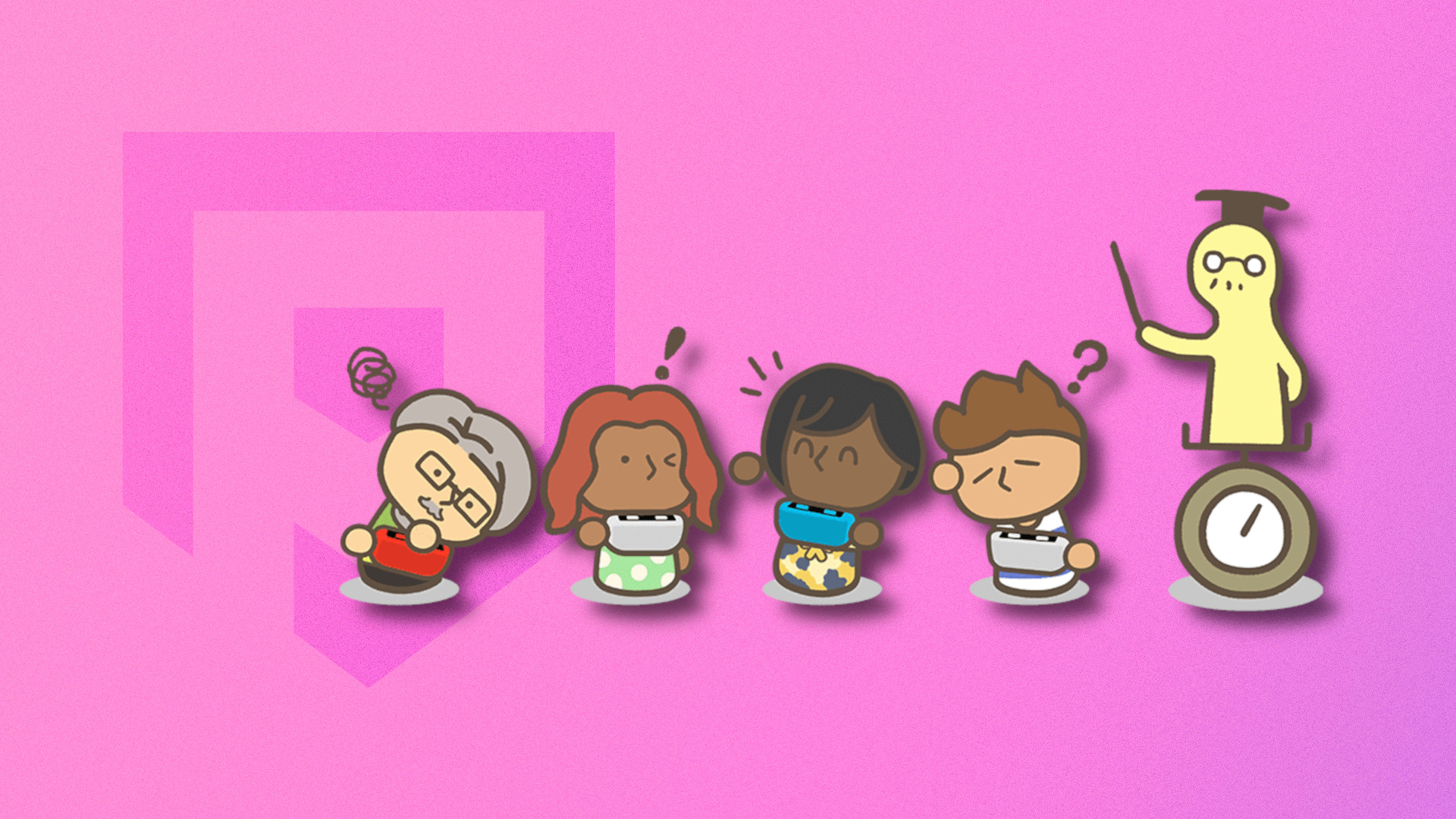After the annus horribilis that was 2023 and with the rough start that in many ways characterized 2024, it’s probably fair to say that many people are worried about the state of the industry and how it could move forward. At Reboot Develop Blue 2024, a panel tackled this very topic and argued that, while the industry has hit rock bottom, it is ready to go back up.
The panel saw on stage Jonas Antonsson (CEO at Raw Fury), Anders Leicht Rohde (CCO of Funday Games), Jussi Tähtinen (CEO at Nitro Games) and Antonio Pašalić (Program Director at WN Media Group). The moderator was Shum Singh (Managing Director at Agnitio Capital).
The discussion kicked off by mentioning the fact that all the people on stage have been working in the industry for more or less two decades and how immensely the industry has grown and changed in that time frame.
“In 2007 there was no mobile market,” said Tähtinen. “The PC segment had become really small and the video game industry was mostly focused on console. Today, PC is bigger than consoles.”
But the tough times the industry is going through, with more than 15,000 announced layoffs so far, are the reason why this panel took place. The big question, the panelists said, is where all these people will go.
“The obvious answer is that the industry is going to lose most of those people, who will choose to give up game development and find a more secure job,” said Tähtinen.
But the situation is not the same everywhere. The panelists mentioned how right now the situation is probably particularly harsh in territories like the USA, where the financing situation is much less favorable than in the past, but the turmoil is felt almost everywhere.
“Denmark is also seeing lots of layoffs and studio closure,” said Funday Games’ Anders Leicht Rohde, “and it’s a particularly rough situation because it’s a small market, so names are piling up on a huge waiting list made of people who lost their jobs and new arrivals who get out of school and hope to get hired somewhere.”
Leicht Rohde added that, while a lot of people are leaving the industry, there are also new small independent studios being founded by those affected.
“The games industry is going to lose most of those people [laid off], who will choose to give up game development and find a more secure job”
Jussi Tähtinen, Nitro Games
WN Media Group’s Antonio Pašalić tried to push a positive spin on the conversation by mentioning how Serbia is actually seeing a complete opposite trend. Apparently, in that territory “it’s better than ever, there’s a lot of investments going on and the local gaming industry is basically being born right now.” Pašalić hopes that this will generate a positive influence in the Balkan area and push the development of gaming in those territories. On a similar note, it was mentioned how the Turkish market seems to be primed for a huge growth.
Picking up from what Rohde had said about younger people coming out of school, Raw Fury’s Jonas Antonsson mentioned one more dire consequence of the current situation: “It makes jobs in the gaming industry much less desirable, with potential new talents probably deciding to look for more secure sectors from the get go.”
At the same time though, he pointed out how the games industry has always functioned in a cyclical way, adding that past collapses, like the infamous 1983 U.S. market crash, “gave birth to companies that became and still are dominant.”
The question is: has the industry hit rock bottom to a point where it can only go up? Panel moderator Shum Singh mentioned that some companies have reached historically low points in terms of market valuation and how people think that’s the best time to invest.
“Some of the biggest game publishers like Ubisoft or many Asian companies have huge amount of cash available,” he said, adding that the issue may not be the lack of funds but the fear of making mistakes.
Antonsson is quite convinced that things are starting to move again and even though investors are more cautious right now, the stock market will soon improve and tax interests will go down. That being said, he warned: “There will still be bad situations and sad news, with layoffs and studio closures, but the worst is behind us.”
Generally speaking, the panel agreed on the fact that financing has already became more available than in the previous six months.
“There will still be bad situations and sad news, with layoffs and studio closures, but the worst is behind us”
Jonas Antonsson, Raw Fury
“Gamescom 2023 was when suddenly everybody stopped signing new games”, Singh said, “but around Game Developers Conference in March it has started to get better, with news of signings and greenlights.”
Antonsson pointed out this is also an opportunity to look at the past and try to grow as an industry.
“In the past few years we’ve seen a crazy way of doing business, with really irrational investments, and maybe this is a chance to start acting in a more rational way.”
He added that he would like the industry to stop being dominated by outside investment thesis – “people from Silicon Valley and external investment funds telling video game publishers and developers what they should do, which trends they should follow.” He thinks that people in the video games industry should go back to making their own decisions and doing what they know is right, instead of listening to foolish ideas coming from the outside.
So what about the future? The panel inevitably touched upon AI, with the the general consensus being that it shouldn’t be particularly dangerous in terms of generating more layoffs and eroding job security. In fact, Tähtinen said, “It will probably be used mostly to simplify processes and it could generate new job opportunities for people who will be hired to manage and use it.”
Leicht Rohde warned that AI could “be impactful on companies that specialize in outsourcing,” but overall the panelists seemed to think there’s not much to fear from this new boogeyman.
Singh observed that Keywords Studios saw a decrease in stock value when market researchers said that its competitors would be able to take advantage of AI, yet Keywords “still had a very profitable year.”
Antonsson also pointed out how new disruptive technologies always change the industry structure: “With the introduction of Unity, big companies that employed armies of C++ programmers almost suddenly disappeared. But, of course, Unity also opened huge doors.”
Elsewhere, Tähtinen believes that the Switch successor and the portable PCs segment kickstarted by Steam Deck could bring back portable gaming. “The mobile market is supposedly dead”, he said, “but people still want to play portable.”
Also, he pointed out how markets never really ‘die’ like we tend to think, adding: “PC was declared dead, now it’s huge; mobile has been declared dead, but what actually happened is that it’s not anymore over 50% of the market… it’s only around 49%.”
Tähtinen also seems to be pretty convinced that the next big splash will come from the indie scene. Sure, Grand Theft Auto VI is coming, but generally speaking, “big publishers are going to focus on safe projects and there’s a real chance for indie game developers to assert themselves as an even bigger part of the industry.”
“There’s twenty venture capital funds that are entirely dedicated to video games. That is something that simply didn’t exist eight years ago”
Shum Singh, Agnito Capital
And the whole panel agreed that the market has to find ways to protect and support independent game development. On this point, the almost complete lack of discoverability and curation is still a big issue in a market that is full of titles and choices and sees over half of the revenue generated by six-year-old games. This, the panel agreed, is a problem that needs to be tackled and, according to Singh, “constitutes a big opportunity for what still is a $200 billion market.”
To reinforce the point, he mentioned how the scenery has changed in his line of work: “There’s twenty venture capital funds that are entirely dedicated to video games. That is something that simply didn’t exist eight years ago. It’s a huge and very diversified industry that is going through an adjustment phase.”
Singh also doubled down on the belief that the indie scene is primed to make big waves in the near future. He hopes that new authors will rise and “do what Quentin Tarantino did in the Nineties for the movie industry” by being a seminal and disruptive force.
The panel concluded with Jonas Antonsson talking about the Raw Fury philosophy and how they quite often “finance games that make no sense from a business point of view,” that will never manage to double the investment or sometimes even just recoup. They do that because they can, they have enough money and they want to support creative people.
“It’s a mentality,” he said. “It’s something that investors hate, but it’s much needed. Raw Fury acts like the music industry did decades ago, with talent scouts that went into bars, local concerts, and used intuition to find talented people.”
He thinks that this way of operating still exists in games, but we see it less and less and there’s the risk that the video games industry “could end up doing exactly what happened in the movie industries by basing every single decision on analytics.”



